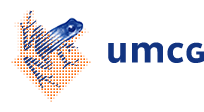Advanced stratification for diabetes prevention/remission – a public-private partnership
Ancora Health and the Department of Endocrinology, University Medical Center Groningen embark on an exciting collaboration to bring together a unique set of skills cutting across bioinformatics, health science, product design, business development, clinical care, and lifestyle as medicine. The team sets out to use large-scale data analysis to quantify underlying aspects of individuals’ biology and type 2 diabetes (T2D) pathophysiology to enable better risk stratification for prevention and disease remission.
Diabetes mellitus (DM) is the fastest growing disease worldwide and a substantial threat to human health. DM increases the risk of premature mortality and morbidity, including cardiovascular disease, renal failure, vision loss, and foot ulcer and amputation, all of which are preventable. With more than 422 million diagnosed globally, the cost of DM management is expected to increase from €740 billion (2017) to €836 billion by 2045. DM is presently classified into two main forms, type 1 (T1D) and T2D, with T2D vastly more prevalent (75-85% of patients). Current guidelines for the pharmacological management of T2D start with metformin monotherapy, followed by life-long, sequential addition of other antidiabetic medications whenever glycaemic targets can no longer be maintained. This continuous need for treatment intensification and visits to various health care professionals as a consequence of multisystem morbidity is unsustainable, and reflects the shortcomings of current DM management.
This team will perform integrated analyses of genetic and clinical data from various biobanks in order to identify (sub-)groups of individuals that are likely to benefit from preventive measures as well as lifestyle as medicine for disease remission.



